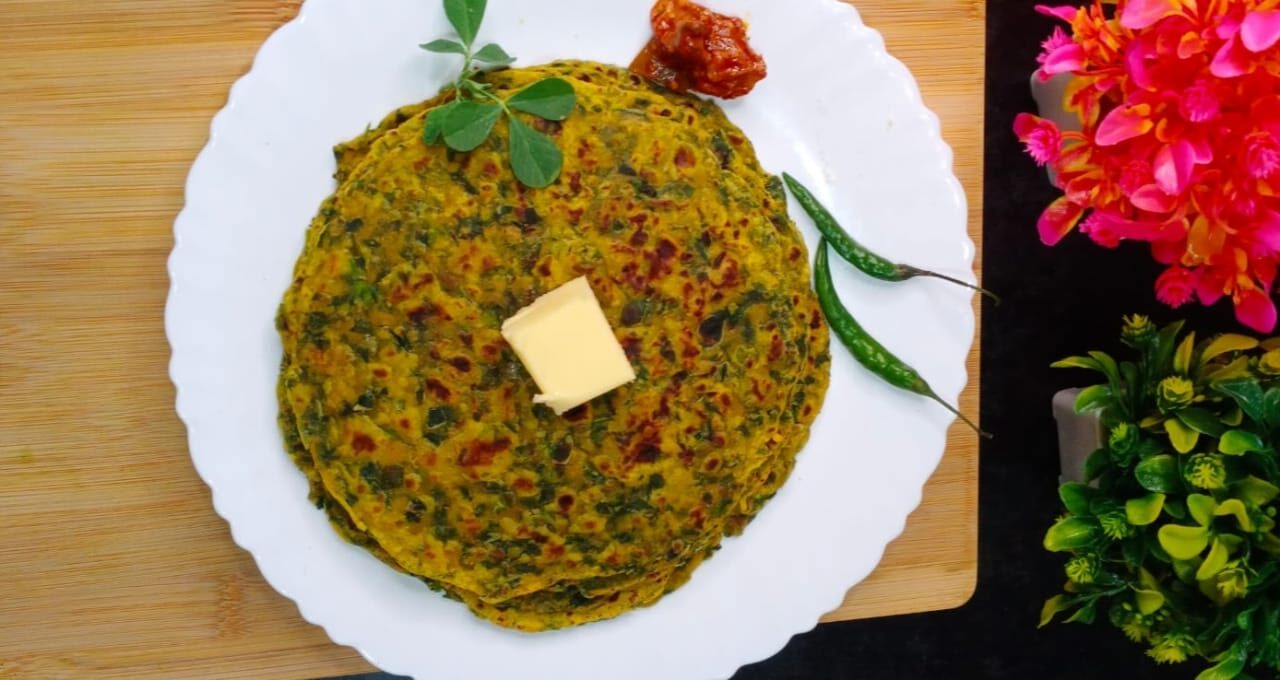Start your day right with a nutritious breakfast. Food is an integral part of the culture in India. There are a variety of breakfast options available in India, from onion pohe, upma, idli, dosa to paratha. But while these foods may be delicious and traditional, they may not meet modern nutritional needs for a balanced and healthy start. In this article, we will explore why a healthy breakfast is important and provide practical, nutritious ideas that cater to both traditional and modern preferences.
Table of Contents
Why is a Healthy Breakfast Important?
After a long night of fasting, we eat breakfast in the morning, and it is our first meal. Breakfast provides energy to the body, helps in keeping blood sugar levels under control and also helps in setting the stage for good digestion of food throughout the day. Eating breakfast in the morning helps in reducing acidity.

1. Energy and Metabolism:
After a night of sleep, your body’s metabolism needs to increase. A healthy breakfast provides the body with essential nutrients such as protein, carbohydrates, fiber and fat. These nutrients provide energy to your muscles, brain and other organs. Eating breakfast within an hour of waking up helps kick-start your metabolism and keeps your energy levels steady.
2. Improved Focus and Productivity:
Eating a balanced breakfast boosts cognitive function. If breakfast contains a good mix of protein and complex carbohydrates, it helps maintain consistent energy levels. This in turn improves mood and concentration.
3. Weight Management:
We often see people skipping breakfast to lose weight, but this is a big misconception. This can also have the opposite effect, as an empty stomach in the morning can lead to overeating throughout the day or even fatigue. A balanced breakfast makes you feel satisfied, prevents overeating and also keeps your weight under control.
4. Digestive Health:
Avoid eating fast food for breakfast. In our busy lives, we often turn to fast food due to lack of time. But it is always good to eat fiber-rich foods in the morning, such as fruits, vegetables, and whole grains, which can help with digestion. This can help prevent constipation and improve bowel health.
In a country like India, where traditional meals include high-carb options like parathas or dosas, breakfast is not just about filling the stomach but also about maintaining good health. We should think about what is on our plate at breakfast time as it will help us achieve good health and help us manage our weight.
What makes a Healthy Breakfast?
A healthy breakfast doesn’t have one rule or depend on any one food. There are several macro-nutrients that help in maintaining a good balance. So, let’s see what they are.

1. Protein:
Foods like eggs, cheese, legumes, or yogurt are good sources of lean protein. These proteins help your body repair muscles, build immunity, and provide energy by keeping you full for longer.
2. Complex Carbohydrates:
Choose whole grains like oats, millet, or whole wheat instead of refined white flour because they contain complex carbohydrates, which provide you with slow and steady energy in the morning, rather than simple sugars.
3. Healthy Fats:
Healthy fats are important for the absorption of fat-soluble vitamins. Also, healthy fats are essential for supporting brain health, heart health, and providing energy. Indian diets include many sources of healthy fats like nuts, seeds, avocados, and ghee in your breakfast.
4. Fiber:
Foods like fruits, vegetables, oats, and whole grains are rich in fiber. Fiber-rich foods aid in digestion, keep you full for longer, and regulate blood sugar.
Nutritional and Popular Indian Breakfast
Breakfast in India has a lot of regional influences, and each dish has its own pros and cons. Here you will find many popular and nutritious options.

1. Pohe (Flat Rice)
Pohe is a dish found in many parts of India. It is a light and easy-to-make dish and is a favorite of the people. It is most popular in Maharashtra. You will find different recipes for it depending on the region, made with flat rice, turmeric, nuts and spices, it is relatively low in calories.
Nutritional benefits:
• Carbohydrates: The primary source of energy.
• Protein: In moderation, if mixed with nuts or peas.
• Fiber: Pohe is light on the stomach and easy to digest, when vegetables are added, it helps in digestion. You can also have it with things like boiled eggs or curd which are good sources of protein and make a balanced breakfast experience.

2. Idli and Dosa
This is a common South Indian recipe and is popular all over India. It is made from fermented rice and urad dal. It is a good source of protein and probiotics.
Nutritional Benefits:
• Carbohydrates: Rice provides a slow release of energy.
• Protein: Urad dal is beneficial for muscle and tissue repair.
• Probiotics: Fermentation adds beneficial bacteria for gut health.
Traditional dosa or idli is often served with coconut chutney or sambar, which can be high in fat and salt. Eating it with chutney maintains its healthiness. You can serve it with sambar for protein and fiber.
3. Paratha (Stuffed Flatbread)
A popular snack in North India but also enjoyed in many parts of India. There are many varieties of paratha, such as aloo paratha, methi paratha, palak paratha, paneer paratha and more. It has many nutritious ingredients.
Nutritional Benefits:
• Carbohydrates: Whole wheat flour parathas are a good source of complex carbohydrates.
• Protein: Depending on the stuffing, parathas can be a good source of protein—especially when served with curd or butter.
• Fiber: Whole wheat is a great source of fiber, which is important for digestion.
Although parathas can be quite heavy, using less oil or ghee and filling them with nutrient-dense vegetables can make them a balanced option.
4. Upma
Made from rava (semolina), upma is a tasty and quick-to-make snack that is commonly eaten all over India.
Nutritional Benefits:
• Carbohydrates: Rava is a source of refined carbohydrates.
• Protein: Upma can be enhanced with peas, cashews or legumes for added protein.
• Fiber: Adding vegetables like carrots, beans and peas increases the fiber content.
Upma can be heavy on the stomach if made with a lot of oil. Choosing a less oily option and adding vegetables will make it lighter and more nutritious.
Modern Healthy Breakfast Options
If you are tired of having traditional breakfast every day, you can try some new breakfast. Now you will see a modern touch in Indian breakfast, which can provide you with more nutrition. Many modern healthy breakfast options are open to you.
1. Vegetable Paratha with Curd
Made with whole wheat flour and use vegetables for extra vitamins and fiber, such as fenugreek, spinach, cauliflower or carrots. Paneer paratha is also a good option these days. Consuming it with curd or butter will make it healthier.
Nutritional Benefits:
• Whole wheat provides fiber, while vegetables provide macro-nutrients.
• Curd provides protein and aids in digestion.
2. Oats Upma
Oats have also gained a special place in breakfast these days. You can make a classic upma by using oats instead of semolina. Which is easy to digest.
Nutritional Benefits:
• Oats are high in soluble fiber, which helps in lowering cholesterol.
• You can add lots of vegetables for fiber, vitamins and minerals.
3. Moong Dal Chilla
These savory pancakes made from ground moong dal (green gram) are high in protein.
Nutritional Benefits:
• Moong dal is a great vegetarian source of protein.
• You can add vegetables like onions, tomatoes, and spinach for additional nutrients.
4. Greek Yogurt Parfait
If you’re looking for a filling breakfast option that’s rich in protein, Greek yogurt parfait is a great and trendy option. The combination of fruits, nuts, and seeds makes it even healthier.
Nutritional Benefits:
• Greek yogurt has more protein than regular yogurt.
• Nuts and seeds provide healthy fats and fiber, making it a balanced meal.
5. Chia Pudding
Chia seeds soaked in almond milk or coconut milk overnight make a creamy, fiber-rich pudding.
Nutritional Benefits:
• Chia seeds are an excellent source of omega-3 fatty acids, protein, and fiber.
• You can top them with fresh fruit, nuts, or seeds for extra crunch and nutrition.
Adopting Healthy Breakfast Habits
It is very important to adopt healthy breakfast habits. Along with what we eat, how we eat it is important. There are some good morning habits that we need to incorporate into our life.:
1. Eat breakfast within an hour of waking up. This helps to boost your metabolism and keep your energy levels stable.
2. Hydrate first: Start the day with a glass of water or lemon water to rehydrate the body after a night’s sleep.
3. Control portions: Avoid overeating by paying attention to portion sizes. Overeating healthy and fast foods can lead to weight gain.
4. Avoid processed foods: Avoid sugary foods such as candies, cakes, and chocolates as well as processed foods such as pastries and fried foods like samosas, vada pav, kachori.
5. Eat seasonal fruits and vegetables: Include seasonal fresh fruits and vegetables in your daily diet.
Conclusion: Start Your Day The Right Way
Your breakfast should be a motivator, a motivator and a energizer for the day. Make sure that your first meal of the day is as delicious and nutritious as it is healthy. Today, we have many breakfast options available to us. You can opt for a traditional Indian breakfast or you can also opt for a modern breakfast option. But it should be complete with fiber, carbohydrates, proteins and healthy fats. This will give you energy for the day’s work, improve your digestive system and make you feel good.
Remember one thing, just like a car cannot run without petrol and oil, similarly, our body cannot function properly without proper diet and good health, so choose your breakfast yourself without falling prey to any misconceptions, skipping breakfast in the morning. Your health depends on your choice. So, choose right and healthy breakfast.











Very nice article